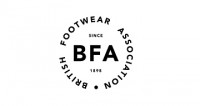Retail industry reacts to Chancellor’s mini budget
Posted on in Business News, Cycles News
Following the Chancellor’s mini-budget last week, the retail industry has been reacting to the support package for small businesses and independent shops….including some of the items conspicuous by their absence.
Following Kwasi Kwarteng’s statement, the Government provided further details to its plans to help cut energy bills for businesses through the new government Energy Bill Relief Scheme. The Government will provide a discount on wholesale gas and electricity prices, and it will apply to fixed contracts agreed on or after 1 April 2022, as well as variable and flexible tariffs and contracts. To deliver the scheme the Government has set a “Supported Wholesale Price” – expected to be 21.1p per kwh for electricity and 7.5p per Kwh for gas. The scheme will apply to energy usage from 1 October 2022 to 31 March 2023 for businesses and will be reviewed in three months to inform decisions on future support after March 2023.
However, industry leaders have also said that the Chancellor’s economic plan failed to address business rates or VAT cuts that are needed to support the high street. The consensus view is that whilst much of the Chancellor’s statement was welcome, more support is needed for parts of the economy heavily hit by the pandemic and likely to come under pressure from households stretched by the rising cost of living.

The Association of Convenience Stores (ACS) chief executive, James Lowman, said: “We welcome that the government’s plan aims to stimulate growth and incentivise investment by businesses. In the last 12 months local shops have invested £605million in improving services, making their businesses more sustainable, and creating secure local jobs.”
However, retail leaders also called for action on business rates before large bill increases are expected to take place next year.
Helen Dickinson, chief executive of the British Retail Consortium (BRC), said: “Retailers are facing immense cost pressures, not just from energy bills, but also a weak pound, rising commodity prices, high transport costs, a tight labour market and the cumulative burden of government-imposed costs.
“Yet what was missing from today’s announcement, was any mention of business rates, which are set to jump by 10% next April, inflicting another £800m in unaffordable tax rises on already squeezed retailers.
“It is inevitable that such additional taxes will ultimately be passed through to families in the form of higher prices.”
Experts at Altus Group predicted that total business rates bill are due to jump by more than £5.3 billion once the end of discounts for retail, leisure and hospitality firms are also taken into account.
Useful links
If you have any other queries please contact us.





















